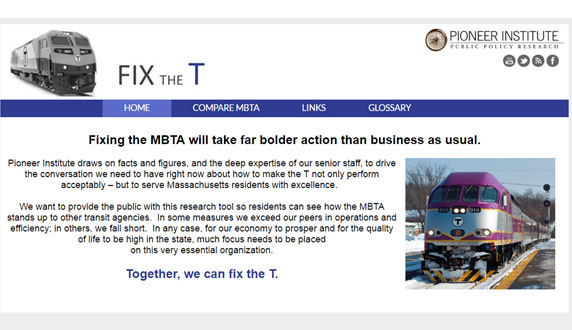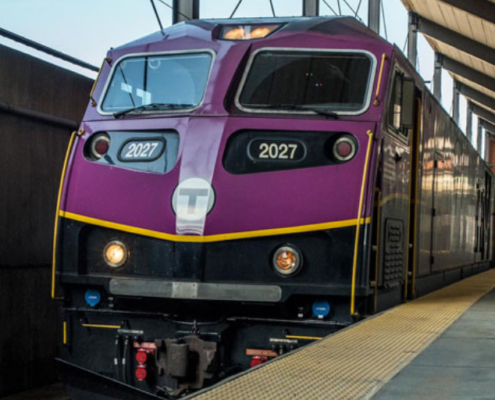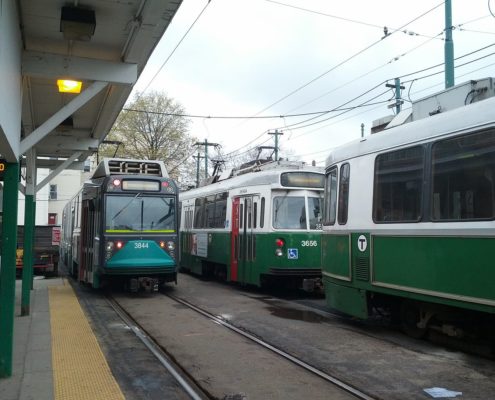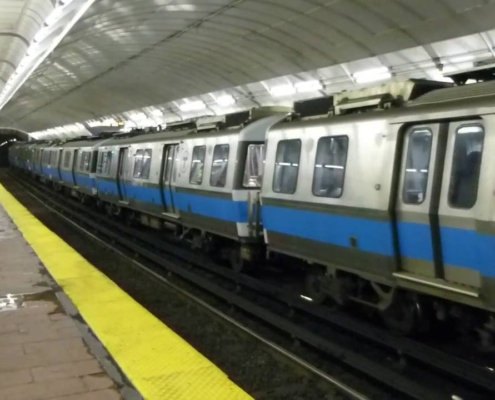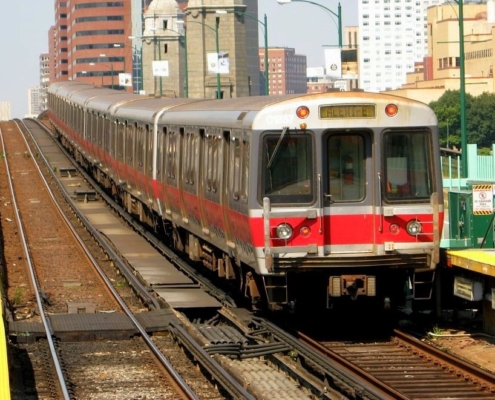MBTA Analysis Offers Data Comparisons between MBTA & Other Transit Agencies Nationwide
Read The Metro‘s coverage of MBTAanalysis.
Contact Micaela Dawson, 617-723-2277 ext. 203 or mdawson@pioneerinstitute.org
BOSTON – Pioneer Institute is unveiling “MBTAanalysis.com,” a web-based data tool that provides year-by-year comparative data and performance ratings for the MBTA and other transit agencies across the country.
“This user-friendly web tool gives policymakers and Massachusetts citizens a way to do their own homework and compare how their transit services compare to agencies around the nation,” said Pioneer Institute Research Director Greg Sullivan. “Since the critical failures in MBTA service during the winter of 2014-2015, we’ve seen great progress—but the riding public knows we have miles to go before we get to high-quality transit services. This tool will help identify specific areas that can still be improved.”
The tool is available at MBTAanalysis.com and includes the most recent data available from the National Transit Database with visualizations of a broad range of metrics. Users can choose from nine tabs with different categories of data, including capital expenditures, operating expenses, and operating efficiencies. In choosing one of these categories of measurement, users can view figures by both year and travel mode.
For every category, the tool offers visualization of MBTA performance in operations and efficiency compared to every other transit agency that reports data to the Federal Transit Administration.
One tab focuses on service measures, showing how MBTA service stacks up against peers like the MTA New York City Transit, Chicago Transit Authority and others in metrics such as directional route miles, passenger miles travelled and vehicle revenue hours. Other tabs show mode performance and spending over time, using 1992-2015 as the base period.
The data available on the website cover almost a quarter century, ranging from 1992 to 2015, the most recent year for which this information is available.
The site was developed by Pioneer with data from the National Transit Database. All data sets were assembled by Greg Sullivan.
MBTAanalysis.com is part of a suite of web-based data tools Pioneer has developed for public use to promote transparency and accountability in local and state government, including MassOpenBooks, MassReportCards, and MassAnalysis. The Institute encourages government agencies to leverage open-source platforms to expand access to information, educate the public, and promote engagement.
About the Author: Gregory W. Sullivan is Pioneer’s Research Director, and oversees the Centers for Better Government and Economic Opportunity. Prior to joining Pioneer, Sullivan served two five-year terms as Inspector General of the Commonwealth of Massachusetts, where he directed many significant cases, including a forensic audit that uncovered substantial health care over-billing, a study that identified irregularities in the charter school program approval process, and a review that identified systemic inefficiencies in the state public construction bidding system. Prior to serving as Inspector General, Greg held several positions within the state Office of Inspector General, and was a 17-year member of the Massachusetts House of Representatives. Greg is a Certified Fraud Investigator, and holds degrees from Harvard College, The Kennedy School of Public Administration, and the Sloan School at MIT.
###
Pioneer Institute is an independent, non-partisan, privately funded research organization that seeks to improve the quality of life in Massachusetts through civic discourse and intellectually rigorous, data-driven public policy solutions based on free market principles, individual liberty and responsibility, and the ideal of effective, limited and accountable government.

